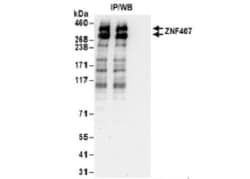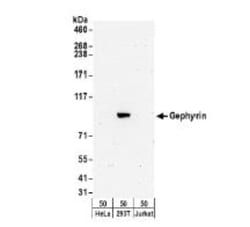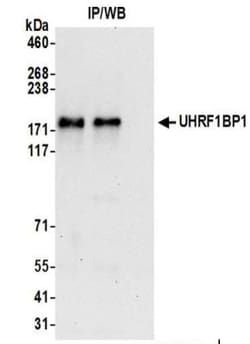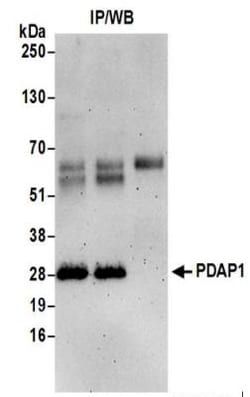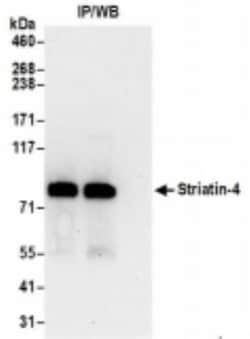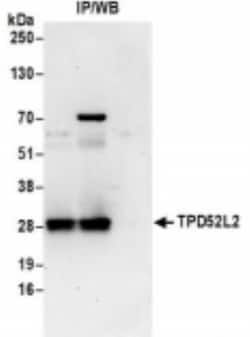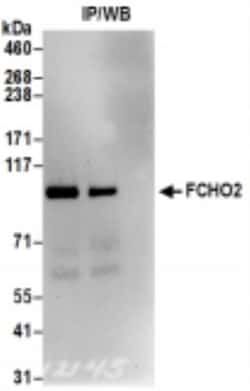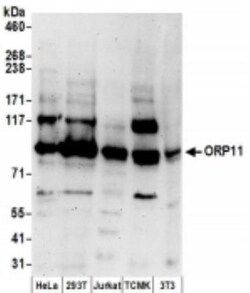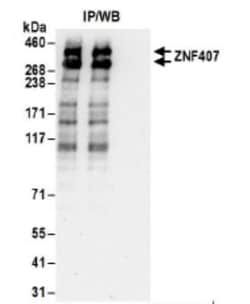ZNF407 Antibody, Novus Biologicals™
Manufacturer: Novus Biologicals
Select a Size
| Pack Size | SKU | Availability | Price |
|---|---|---|---|
| Each of 1 | NBP234850-Each-of-1 | In Stock | ₹ 48,772.00 |
NBP234850 - Each of 1
In Stock
Quantity
1
Base Price: ₹ 48,772.00
GST (18%): ₹ 8,778.96
Total Price: ₹ 57,550.96
Antigen
ZNF407
Classification
Polyclonal
Conjugate
Unconjugated
Formulation
Tris-Citrate/Phosphate (pH 7.0 - 8.0) with 0.09% Sodium Azide
Gene Alias
FLJ13839, FLJ20307, KIAA1703, zinc finger protein 407
Host Species
Rabbit
Purification Method
Affinity Purified
Regulatory Status
RUO
Gene ID (Entrez)
55628
Target Species
Human
Isotype
IgG
Applications
Immunoprecipitation
Concentration
1.0 mg/mL
Dilution
Immunoprecipitation 2 - 10 ug/mg lysate
Gene Accession No.
NP_060227.2
Gene Symbols
ZNF407
Immunogen
The immunogen this antibody was made to, maps to a region between residue 2000 to 2050 of human Zinc Finger Protein 407 using the numbering given in entry NP_060227.2 (GeneID 55628).
Quantity
100 μL
Primary or Secondary
Primary
Test Specificity
Based on 100% sequence identity, this antibody is predicted to react with Orangutan, Gorilla and Chimpanzee.
Content And Storage
Store at 4C short term. Aliquot and store at -20C long term. Avoid freeze-thaw cycles.
Related Products
Description
- Description ZNF407 Polyclonal specifically detects ZNF407 in Human samples
- It is validated for Immunoprecipitation.
